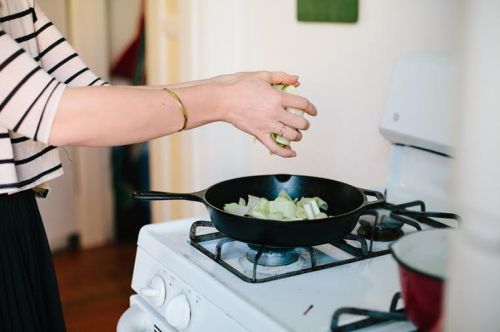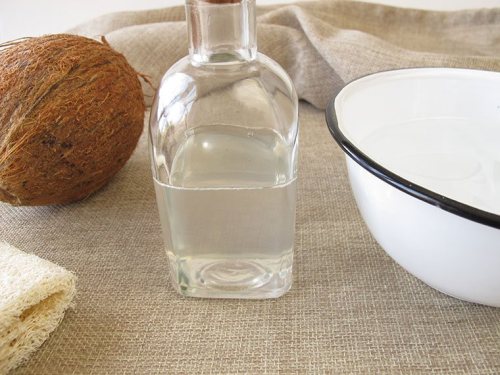Everything you need to know about cooking with coconut oil
Nutritionist Kerri Glassman MS, RD, CDN gives her tips on cooking and baking with coconut oil.


Coconut oil may already have a solid place in your beauty routine (whether you’re using it to replace your mouthwash or make your hair grow faster), but the multitasker‘s perks are more than skin deep.
Using it as a cooking staple is an easy way to get an extra dose of healthy fats, and it’s been shown to help raise good cholesterol levels (HDL) and lower harmful triglycerides in the blood. According to renowned nutritionist Keri Glassman, MS, RD, CDN, there are even some studies that suggest that it could help prevent Alzheimer’s disease.
Okay, so the benefits are pretty obvious. Now the big question: How do you use coconut oil alongside your olive and avocado oils? Here, Glassman shares her tips on how to incorporate it into your diet—besides Bulletproof-style spiking your coffee, that is.
Keep reading for everything you need to know about cooking with coconut oil.

For cooking
Olive oil is great for drizzling on your salad—Mediterranean Diet FTW—but when it comes to actually cooking your veggies, Glassman says coconut oil’s a better choice thanks to its higher smoke point of 350°F. That goes for coating your skillet before you scramble up some eggs, too. Although if you’re going much higher, you’re better off with avocado oil, which can handle up to 570°F heat.

For baking
This is Glassman’s favorite way to use coconut oil, because the flavor profile adds an extra bit of sweetness to whatever you’re baking. “It works in pretty much any recipe that calls for oil or fat,” she says. So if your recipe lists regular old canola oil, this is the healthy fat’s time to shine. And unlike cooking with alt-flour or alt-sugar, the measurements for subbing in coconut oil stay the same, so it’s essentially foolproof.

How much is too much?
Coconut oil is a nutritional powerhouse, but does it ever become too much of a good thing? Like any other ingredient, Glassman says it’s best to stick to the serving size, which is typically one tablespoon. After that, your body won’t put to use all the amazing benefits. “One spoonful at every meal is enough to reap the rewards,” Glassman advises. And just like any fat, it’s filling—meaning that will be enough to leave you satisfied, too. Consider yourself nuts for skipping it in the kitchen.
If you’re looking for even more ways to use coconut oil, check out these 14 beauty uses and find out Olivia Culpo’s genius hack that might make you toss your lipstick.
Sign Up for Our Daily Newsletter
Get all the latest in wellness, trends, food, fitness, beauty, and more delivered right to your inbox.
Got it, you've been added to our email list.










